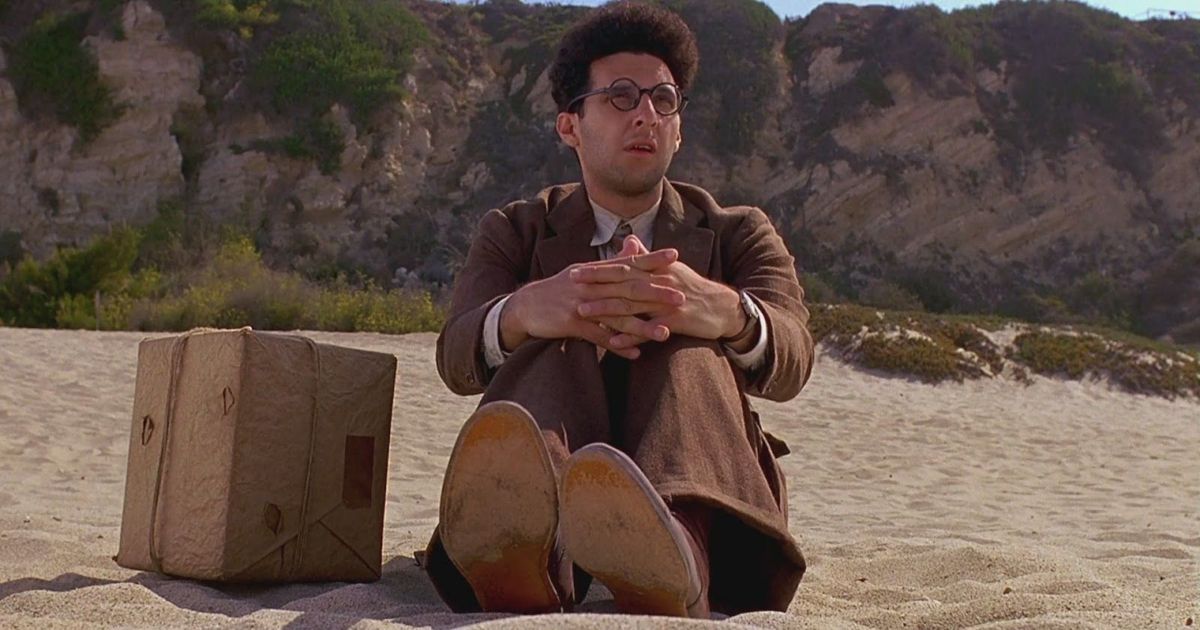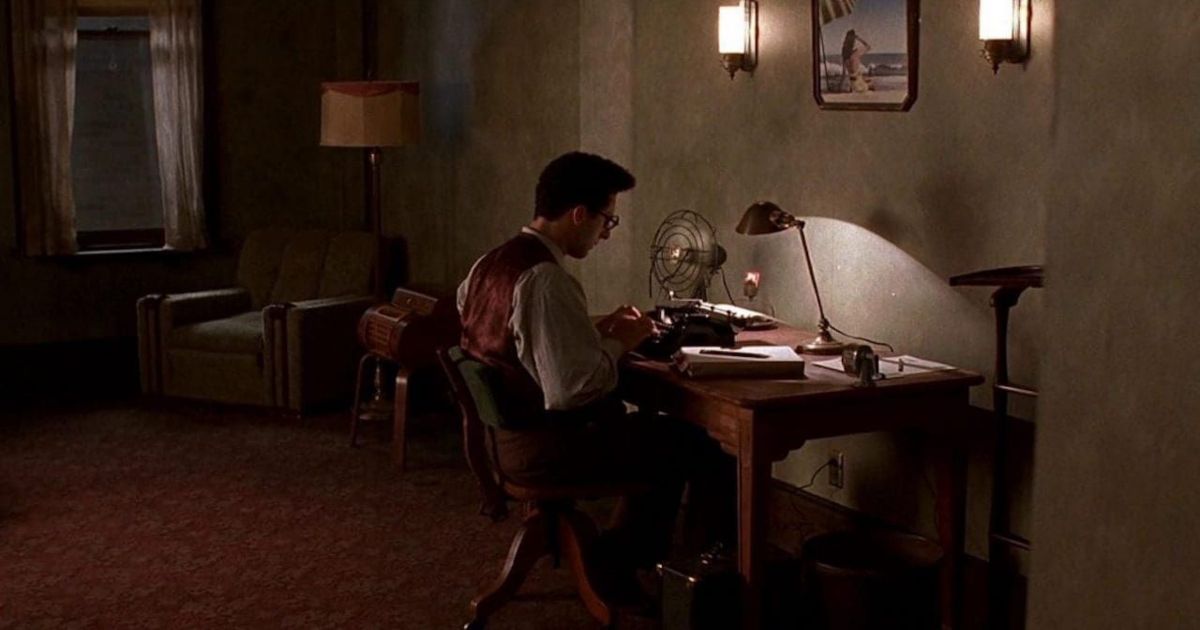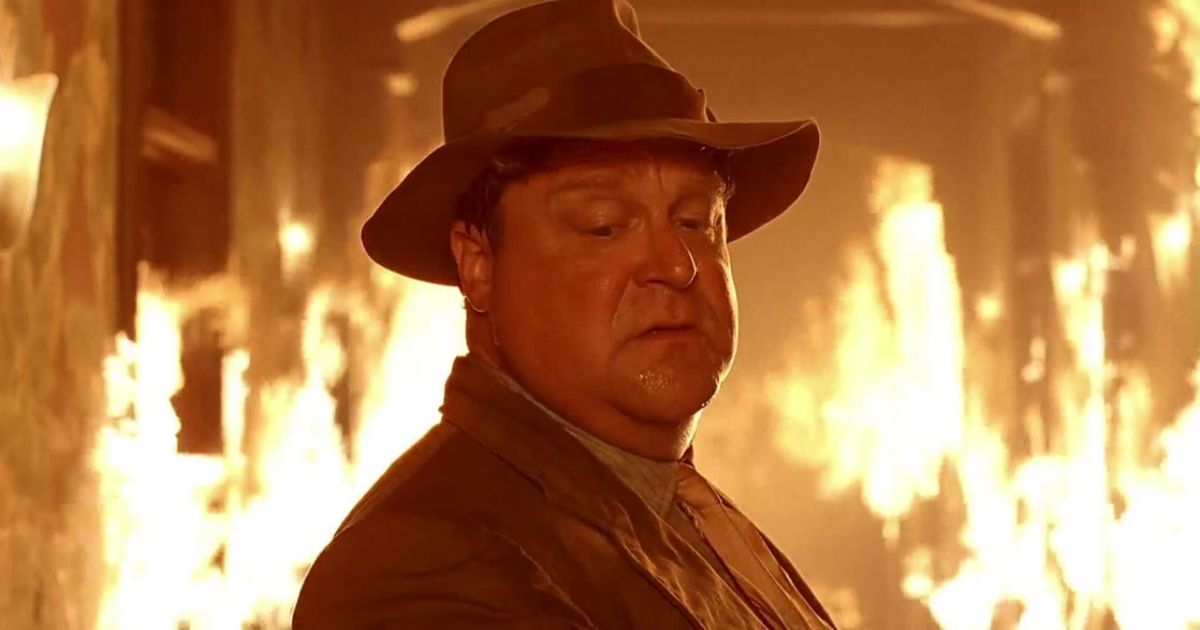Hollywood’s inclination towards romanticizing the art of writing is a familiar tale. Woody Allen’s Midnight in Paris is one such example of a screenplay that darts in and out of the Parisian “café culture,” as screenwriter Gil Pender (Owen Wilson) picks the brains of the ‘Lost Generation’ off the cobbled streets of the French Capital. Gil utilizes a pensive Hemingway and the sensitivity of F. Scott Fitzgerald as literary sounding boards, as he takes a trip back in time seeking inspiration to help counteract his writer's block.
The capricious, wandering, purposeless writing souls as portrayed in film is perhaps a tad clichéd nowadays, an exhausted narrative, especially compared to the brilliance of certain real writers. Like Hemingway and Fitzgerald, the writing/directing duo the Coen Brothers are two of a kind, unrestricted by boundaries and conventions, constantly challenging common ground, somehow locating nuances within the already nuanced.
Introducing Barton Fink
1991 was a big year in film, most notably for Jonathan Demme’s Silence of The Lambs near clean-sweep at the Oscars. While Demme, Foster, Hopkins & co. took in the adulation at the Academy Awards, the Coen Brothers were one of the 90s winners of the Palme d'Or and had a sweep of their own at Cannes for their new picture, Barton Fink. Their awards haul would actually lead the Cannes Film Festival to change their rules so that no single film could dominate in such a way again, and yet Barton Fink would subsequently go on to become a box office flop.
30-years-later and that paltry figure of $6.1 million grossed at cinemas is not a defining statistic in Barton Fink’s now decorated reception as one of the greatest, most unique, and infuriatingly allegorical films ever made. With a filmography featuring the likes of No Country for Old Men, The Big Lebowski, Fargo, and True Grit, it is a symbol of real commendation that Barton Fink is arguably the blue diamond in the Coen Brothers treasure chest.
Barton Fink, unlike the aforementioned Woody Allen movie, doesn’t contain the generic platitudes of a directionless, fastidious writer who ventures out to a foreign city in hopes of a burst of creative flair (although LA may as well be foreign to Barton, in a perfect John Turturro performance). Beginning in his native New York, Fink is an apparently gifted and celebrated Broadway playwright whose promise leads him into a role with Capitol Pictures to become a screenwriter over on the West Coast, in Los Angeles.
Barton Fink, For and Against the 'Common Man'
Initially skeptical about his new position, Fink relocates to LA, checking into the dingy Hotel Earle where he is neighbors with the 'everyman' insurance salesman, Charlie Meadows (in one of John Goodman's greatest roles). Fink spends his days and nights frantically typing away on his typewriter like some kind of screenwriting maniac, with each draft inevitably destined for the bin.
As with all the Coens' movies, Barton Fink is heavily stylized, both in production and in character. From the drab, lusterless hotel room where the damp-sodden wallpaper is visibly peeling from the walls, and the only decorative feature is that of a lady sitting on a beach, to Fink and Meadows’ personalities offering an on-screen oxymoron, with Fink’s awkward desperation and Meadow’s larger-than-life outlook. Upon reflection, Barton’s somber, washed-out hotel room foreshadows the eventual impact the rigorous demands of LA and Hollywood screenwriting have on him. Fink is a walking, talking, and writing contradiction, driven by the aspiration to make theatrical and cinematic productions for the “common man,” he descends to a place where this hankering is most unlikely to materialize, governed by pseudo-intellectuals in their ivory, Hollywood towers.
The beauty of the Coens' Barton Fink, put simply, is that it can’t be conventionalized. It’s a synthesis and subversion of genre conventions that seemingly work harmoniously before they switch to become discordant, and Barton’s subtle egocentricity comes to the fore. His infatuation with creating theater for the “common man” becomes a desperate cry of autonomy in an industry dominated by conformity, and his attempts to pen a script that is purely proletariat ends up being based on anything but: a wrestler.
His move to the so-called “City of Angels,” that is rather aptly plagued by evil, renders him helpless and unlikeable. His vulnerability isn’t a play for sympathy, but a source of irritation; like the vexatious buzz of the ever-present mosquito in his room, you are left wanting to swat Barton away, as well as the rest of the detestable characters. Ironically, it’s the madman, serial killer Charlie Meadows, who you gravitate most towards. On the face of it, he's a warm, friendly, and solicitous individual, the common man personified, who Fink almost inadvertently condescends with his tiresome rhetoric about making theater and cinema for 'lowly' folk like him. Of course, Meadows inaugurates an apocalyptic horrorshow near the end of Barton Fink, perhaps a kind of manifestation of Fink's simultaneous desire and fear of the working class.
The Beautiful, Incomprehensible Barton Fink
Like that of another trance-like film about Hollywood, Mulholland Drive, Barton Fink is a concoction of fantasy and mystery, and as the screenplay enters its climax (and Roger Deakins' great cinematography gets more and more claustrophobic and surreal), it certainly offers up more questions than it answers. It’s as though it’s one big metaphor, but for what we are unsure, although Ethan and Joel have attested otherwise. Barton Fink has myriad subtexts, whether it's about Judaism, Hollywood, World War II, the impossible difference between fantasy and reality, the death of working-class politics in America, the terror of 'ordinary people,' or simply writer's block (the Coens notoriously wrote the script in three weeks while working on Miller's Crossing and needing a breather).
It serves as a lesson in how the harsh reality of LA will chew you up and spit you out, especially in Barton’s case, being predisposed to writer's block and to the immense pressures of Hollywood hotshots like Jack Lipnick (Michael Lerner). In a nonsensical kind of way, you are left desperately rooting for Fink, who, despite some of his unpalatable qualities, is the only hope able to make any sense of the madness that engulfs him. Wishing with every fiber of being that he can just hurry up, overcome the writer's block, and get out of that sh*thole alive and with his sanity intact. You are still left with that one burning question: Why? It’s a film that makes you think, and think, and fink, and fink, until you start questioning your own sanity. And in that, lies the beauty of this masterpiece.


.jpg)


.jpg)